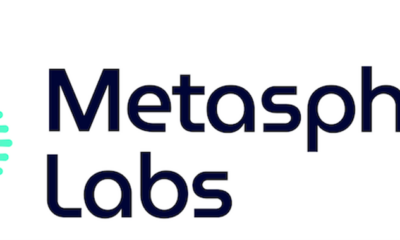Tech
How the MIT Brothers Allegedly Scammed a Harmful But Accepted Ethereum Practice Out of $25 Million

They had everything planned.
In late 2022, the Peraire-Bueno brothers – twenty-something Massachusetts Institute of Technology graduates who had set their sights on blockchain – embarked on a venture that ultimately netted them $25 million, in one of the most sophisticated exploits of the last ten years or so. of frequent cryptographic exploits. Initially, according to the US Attorney’s Office, a four-phase plan was outlined.
First there was “The Bait.” Then there was “The Opening of the Block,” followed by “The Search,” and finally “The Propagation.”
“Over the next few months, the defendants followed each step as outlined in their exploit plan,” according to an accusation.
Their father is Jaime Peraire, former head of the aeronautics and astronautics department at MIT, CNBC reported it.
The exploit occurred thanks to a vulnerability that the brothers discovered in MEV-boost, a software used by about 90% of validators who manage the blockchain, allowing them to see block transactions before they are officially sent to validators.
MEV, or maximum extractable valueit is sometimes known as an “invisible tax” that validators and builders can collect from users by reordering or inserting transactions into a block before they are added to the blockchain.
The practice is sometimes compared to “frontrunning” in traditional stock markets, but due to the difficulty of completely eradicating it, the Ethereum community has more or less accepted the practice and simply tried to downplay the deleterious effects.
One such mitigation strategy is through the use of MEV-Boost, a software program used by approximately 90% of Ethereum validators. The idea is that all newcomers could earn MEV more equally.
This “this is just how it’s done” attitude was explicitly acknowledged by prosecutors in their charging document.
“Tampering with these well-established MEV-Boost propositions, relied upon by the vast majority of Ethereum users, threatens the stability and integrity of the Ethereum blockchain for all network participants,” according to the indictment.
On Ethereum, users submit transactions that are added to a “mempool,” an area where transactions are in a holding pattern.
MEV-boost allows “block builders” to assemble mempool transactions from the mempool and put them into blocks.
Then, MEV robots, or “researchers,” look at the mempool and evaluate which transactions could generate profitable trades, and sometimes bribe block builders to rearrange or insert certain transactions for extra profits. Ethereum validators then take those blocks from MEV. -empower them and ink them on the chain, where they become irreversible.
All these steps are usually performed automatically by the software in fractions of seconds.
What the Peraire-Bueno brothers did in this case was target three MEV robots that lacked certain controls and set up 16 validators designed to lure the robots.
When researchers group transactions together, they have a target transaction, a transaction signed before, and a transaction signed after.
“The rules of the game are: ‘Well, I give you this packet, and the packet has to run atomically,’ meaning it will only go forward if all three transactions are included in exactly this order, and whatever else beyond that, it’s not going to work,” Matt Cutler, CEO of Blocknative, a blockchain infrastructure company, told CoinDesk in an interview.
As the brothers created malicious validators, their intent was always to seize the opportunity to exploit bots that didn’t have those checks by segregating those transactions.
“Because the honeypot transactions were very profitable and the bots lacked controls to prevent certain conditions from occurring and fundamentally trusted the integrity of the validator and the MEV enhancement ecosystem, the malicious validator gained access to signed transactions that were protected and were then able to manipulate signed transactions to drain $25 million in funds from the robots,” Cutler said.
In its indictments, the government went to great lengths to demonstrate that the activities – targeting a crucial point of the blockchain’s inner workings, at a technical level even for experienced blockchain developers – diverged from community norms and fell into the realm of fraud. .
Specifically, the brothers were accused of sending a “fake signature” in place of a valid digital signature to a crucial player in the chain known as “relay.” A signature is required to reveal the contents of a proposed block of transactions, including all potential profits contained in the package.
“In this process, a relay acts similarly to an escrow account, temporarily holding otherwise private transaction data of the proposed block until the validator commits to publishing the block to the blockchain exactly as ordered,” they wrote the prosecutors. “The relay will not release transactions within the proposed block to the validator until the validator has confirmed via a digital signature that it will publish the proposed block, as structured by the builder, to the blockchain.”
Based on their research and planning, prosecutors said, the brothers “knew that the information contained in the false signature was designed to deceive Relay into prematurely releasing the entire contents of the proposed block to defendants, including private individuals.” transaction information,” according to the indictment.
As Cutler said, “Stealing is stealing, regardless of the terms that permit it.”
“Just because your car door is open, doesn’t mean it’s okay to get into your car, right?” He said.
Ethereum is often susceptible to some controversial MEV business practices, such as front-running and so-called sandwich attacks. But many prominent figures in the MEV ecosystem view last year’s exploit as pure theft.
Taylor Monahan, lead product manager at MetaMask, wrote on X that “Yes, if you steal and launder $25 million you should expect to go to prison for a long time lmfao.”
“It’s a bit like robbing thieves, you might say, but regardless it was clearly an exploit, a manipulation of the rules, in a way that appears to be in violation of the established laws of the jurisdiction, right,” Cutler said.
As if to underline the point, the government said that in the weeks following the exploit, Anton Peraire-Bueno “searched online for, among other things, ‘best crypto lawyers,’ ‘how long do we have statue? [sic] of Limitations”, “Wire Fraud Act/Wire Fraud Act”. [sic] of Restrictions,” “Fraudulent Ethereum Address Database,” and “Money Laundering Statue.” [sic] of limitations.””
The indictment also noted that the day after the exploit, James Peraire-Bueno sent an email to a bank representative requesting “a safe deposit box large enough to fit a laptop.”
Tech
Hollywood.ai by FAME King Sheeraz Hasan Promulgates a Complete Ecosystem that Unites Web3, Cryptography, AI and Entertainment for Spectacular Global Tech Innovation

The one and only FAME King Sheeraz Hasan is launching Hollywood.ai, a revolutionary platform designed to integrate the cutting-edge realms of Web3, cryptocurrency, AI, finance and entertainment. This revolutionary initiative is set to create a seamless, interactive and intuitive ecosystem where the world’s leading technology luminaries can collaborate on innovations, ultimately redefining the future of digital interaction.
Hollywood.ai represents the convergence of the most complex technologies of all time. Fusing Web3 principles, cryptocurrency utilities, AI advances, and financial machinery, Sheeraz’s platform aims to become the nucleus for innovation and modernization. It provides a high-tech environment where technology and creativity collide harmoniously, paving the way for new paths in the digital economy.
A defining feature of Hollywood.ai is the integration of cryptocurrency into the AI ecosystem, transforming AI into a tokenized asset with full cryptographic utility. Sheeraz’s novel approach presents new avenues to leverage the myriad capabilities of AI in the financial realm, unlocking unprecedented opportunities for developers and users alike. Through the amalgamation of AI and cryptocurrency, Hollywood.ai is paving the way for an incredibly interconnected digital space unlike anything seen before.
The platform’s design emphasizes the undeniable symbiosis between various technology sectors. Under Sheeraz’s careful orchestration, Web3 technologies facilitate decentralized collaboration, while AI tools offer enhanced potential for data analytics, content creation, and audience engagement. Additionally, the inclusion of financial innovations ensures rapid mobility of both monetization and investments, providing a holistic environment that meets the ever-evolving demands of the technology and entertainment segments.
Sheeraz’s Hollywood.ai is poised to become the premier hub for industry leaders, developers, and creators to support and empower the next generation of digital experiences. This initiative aspires to drive the emergence of new tools, applications, and services that set new standards for advanced engagement and interaction.
Known for making the impossible possible, Sheeraz envisions a future where global audiences actively participate in designing the next A-list stars from scratch. Hollywood.ai will allow users to watch their creations evolve from simple concepts to 3D talents that can act, sing and perform just like human actors.
The Hollywood.ai platform leverages AI technology to deliver personalized fan engagement, real-time sentiment analysis, and informed content creation. By combining cutting-edge AI capabilities with Sheeraz’s deep understanding of celebrity branding, Hollywood.ai gains immense control over public figures.
Undeniably, FAME’s number one strategist Sheeraz Hasan continues to cement his reputation as a pioneer in the fields of FAME and technology. The power and influence of this latest development brings him closer to total world domination.
Tech
Online Broker Futu Offers Cryptocurrency Trading in Hong Kong, With Nvidia and Alibaba Stock as Rewards

Futu Securities International, Hong Kong’s largest online broker, has launched retail cryptocurrency trading in the city, offering shares of Alibaba Holding Group AND Nvidia as a reward in an attempt to attract investors. Futu has begun allowing Hong Kong residents to trade Bitcoin and ether, the world’s two largest cryptocurrencies, directly on the brokerage platform using Hong Kong or U.S. dollars, the company announced Thursday.
The online retail broker said last month that it had received an upgrade to its securities license from the Securities and Futures Commission (SFC), allowing Futu to offer virtual asset trading services to both professional and retail clients in the city.
Futu’s move comes as Hong Kong seeks to boost its attractiveness as a business hub for virtual assets, with the city government launching a series of new cryptocurrency policy initiatives over the past two years, including a mandatory licensing regime for cryptocurrency exchanges.
In addition to offering cryptocurrency trading on its flagship brokerage app, Futu is also seeking a cryptocurrency trading license for its new PantherTrade platform. That platform is among 11 in Hong Kong that are currently “deemed licensed” for cryptocurrency trading, an arrangement that allows them to operate in the city while they await full approval from the SFC.
Hong Kong’s progress in becoming a crypto hub has encountered various challenges, including exit of the major global platforms and relatively low trading activity for cryptocurrency exchange-traded funds offered on local stock exchanges.
Futu is now offering a series of incentives to potential investors, amid a cryptocurrency bull market that has seen the price of bitcoin rise 45 percent this year.
Hong Kong investors who open accounts in August and deposit HK$10,000 (US$1,280) over the next 60 days can receive HK$600 worth of bitcoin, a HK$400 supermarket voucher or a single Chinese stock. e-commerce giant Alibaba. Alibaba owns the South China Morning Post.
By holding 80,000 U.S. dollars for the same period, users can get 1,000 Hong Kong dollars in bitcoin or a share of U.S. artificial intelligence (AI) chip maker Nvidia, whose shares have risen more than 140 percent this year.
A Futu representative said the brokerage firm will also waive cryptocurrency trading fees starting Thursday until further notice.
Futu is the first online brokerage in Hong Kong to allow retail investors to buy cryptocurrency directly on its platform. SFC rules require it to offer this service through a tie-up with a licensed cryptocurrency exchange. Futu is partnering with HashKey Exchange, one of only two licensed exchanges in Hong Kong, according to the representative.
Futu’s local rival Tiger Brokers also said in May that it had begun offering cryptocurrency trading services to professional investors on its platform following a license update. The SFC defines professional investors as those with more than HK$8 million in their investment portfolios or corporate entities with assets exceeding HK$40 million.
Tech
Tech Crash: $2.6 Trillion Market Cap Vanishes as ‘Magnificent 7’ Prices Stumble

A group of seven megacap tech stocks, often called the Magnificent 7, have lost more than $2.6 trillion in value over the past 20 days, or an average of $125 billion per day over the period. In total, these stocks have lost “three times the value of the entire Brazilian stock market.”
This according to the economic news agency Letter from Kobeissiwho noted on the microblogging platform X (formerly known as Twitter) that the Magnificent 7 batch “is worth as much as Nvidia’s entire current market cap in 20 days,” with Nvidia itself having lost $1 trillion from its high.
Source:Letter from Kobeissi on the X
The group, which includes Nvidia, Microsoft, Amazon, Apple, Alphabet, Meta and Tesla, has undergone a significant correction: in the last 20 days Nvidia has lost 23% of its value, or about $800 billion, while Tesla has fallen 19%, losing $164 billion.
Microsoft, Apple, Amazon, Alphabet and Meta all posted losses of between 9% and 15%, losing between $257 billion and $554 billion in market capitalization, wiping out a total of $200 billion more “than every single German stock market tock combined.”
Tech titans, which have outperformed the broader S&P 500 index since the market bottom of 2022, are now facing a reckoning as investors grow increasingly wary about the sustainability of their meteoric rise, with Nvidia taking the lead soaring 110% since the beginning of the year and over 2,300% in the last five years.
Earnings reports from these companies, starting with Microsoft and culminating with Nvidia in late August, will be closely watched for signs of weakness. Their performance could set the tone for broader market sentiment, with implications for everything from cryptocurrency to other high-risk assets.
Their poor performance comes after a leading macroeconomist, Henrik Zeberg, reiterated his forecast of an impending recession that will be preceded by a final wave in key sectors of the market, but which can potentially be the worst the market has seen since 1929the worst bear market in Wall Street history.
In particular, the Hindenburg Omen, a technical indicator designed to identify potential stock market crashes, began flashing just a month after its previous signal, raising concerns about a possible impending stock market downturn.
The indicator compares the percentage of stocks hitting new 52-week highs and lows to a specific threshold. When the number of stocks hitting both extremes exceeds a certain level, the indicator is said to be triggered, suggesting a greater risk of a crash.
Featured Image via Disinfect.
Tech
Trump Fights for Cryptocurrency Vote at Bitcoin Conference

To the Bitcoin Conference 2024 In Nashville, Tennessee, former President Donald Trump delivered a keynote speech.
Trump, the Republican presidential candidate, used the platform to appeal to the tech community and solicit donations for the campaign. During the conference, He said:
I promise the Bitcoin community that the day I take the oath of office, Joe Biden and Kamala Harris’ anti-crypto crusade will be over… If we don’t embrace cryptocurrency and Bitcoin technology, China will, other countries will. They will dominate, and we can’t let China dominate. They are making too much progress as it is.
Trump’s speech focused heavily on cryptocurrency policy, positioning it as a partisan issue. He said that if reelected, he would fire SEC Chairman Gary Gensler on his first day in office, a statement that drew enthusiastic applause from the audience. This statement marked a stark contrast to Gensler’s tenure, which has been characterized by rigorous oversight of the cryptocurrency industry.
The former president outlined several pro-crypto initiatives he would undertake if elected. These include transforming the United States into a global cryptocurrency hub, keeping all government-held Bitcoin as a “national Bitcoin reserve,” establishing a presidential advisory council on Bitcoin and cryptocurrency, and developing power plants to support cryptocurrency mining, emphasizing the use of fossil fuels.
Trump’s current embrace of cryptocurrencies represents a reversal from his stance in 2021, when described Bitcoin as a “scam against the dollar.” He also noted that his campaign has received $25 million in donations since accepting cryptocurrency payments two months ago.
The event featured other political figures, including Republican Senators Tim Scott and Tommy Tuberville, as well as Democratic Representatives Wiley Nickel and Ro Khanna. Independent presidential candidate Robert F. Kennedy Jr. also spoke at the conference.
Trump’s appearance at Bitcoin 2024 reflects growing support for his campaign from some tech leaders, including Tesla CEO Elon Musk and cryptocurrency entrepreneurs Cameron and Tyler Winklevoss.
While Trump has described the current administration as “anti-crypto,” Democratic Congressman Wiley Nickel said Vice President Kamala Harris is taking a “forward-thinking approach to digital assets and blockchain technology.”
This event underscores the growing political importance of cryptocurrency policy in the upcoming presidential election.
Kamala Harris and Democrats Respond on Cryptocurrencies
In a strategic move to repair strained relations, Vice President Kamala Harris’ team has initiated a dialogue with major cryptocurrency industry players. This outreach aims to restore the Democratic Party’s stance on digital assets and promote a more collaborative approach.
THE Financial Times reports that Harris’s advisors have reached out to representatives from industry leaders like Coinbase, Circle, and Ripple Labs. This move comes as the cryptocurrency community increasingly supports Republican candidate Donald Trump, reflecting growing dissatisfaction with the current administration’s cryptocurrency policies.
THE disclosure follows a letter from Democratic lawmakers and 2024 candidates urging the party to reevaluate its approach to digital assets. Harris’s team stresses that this effort is less about securing campaign contributions and more about engaging in constructive dialogue to develop sensible regulations.
The move is part of a broader strategy to reshape the Democratic Party’s image among business leaders, countering perceptions of an anti-business stance. Harris’ campaign aims to project a “pro-business, responsible business” message.
-

 Videos9 months ago
Videos9 months agoCrypto News: Bitcoin, ETH Price, CPI Print, PYTH, WIF & MORE!!
-

 Videos9 months ago
Videos9 months agoCrypto News: Bitcoin Price, ETF, ETH, WIF, HNT & MORE!!
-

 DeFi9 months ago
DeFi9 months agoMetasphere Labs announces follow-up event regarding
-

 Videos9 months ago
Videos9 months agoSolana price potential?! Check out THIS update if you own SOL!!
-

 Videos8 months ago
Videos8 months agoWho Really CONTROLS THE MARKETS!! Her plans REVEALED!!
-

 DeFi6 months ago
DeFi6 months agoPump.Fun Overtakes Ethereum in Daily Revenue: A New Leader in DeFi
-

 News6 months ago
News6 months agoNew bill pushes Department of Veterans Affairs to examine how blockchain can improve its work
-

 DeFi6 months ago
DeFi6 months agoDegens Can Now Create Memecoins From Tweets
-

 News6 months ago
News6 months agoLawmakers, regulators to study impact of blockchain and cryptocurrency in Alabama • Alabama Reflector
-

 Bitcoin6 months ago
Bitcoin6 months ago1 Top Cryptocurrency That Could Surge Over 4,300%, According to This Wall Street Firm
-

 Ethereum8 months ago
Ethereum8 months agoComment deux frères auraient dérobé 25 millions de dollars lors d’un braquage d’Ethereum de 12 secondes • The Register
-

 Videos8 months ago
Videos8 months agoCryptocurrency News: BTC Rally, ETH, SOL, FTM, USDT Recover & MORE!















